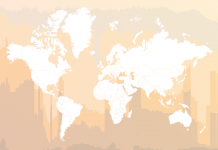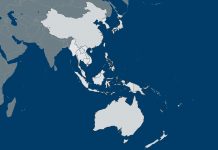I have presented geopolitics to be like economics, a science that predicts and summarizes the impersonal forces that drive a system so vast as to be beyond the control of individuals. Each is controlled by forces so powerful that kings and peasants alike must align with them or fall victim to them. Kings ultimately do not decide the global business cycle, nor do they control the relations between nations. Kings must align with the overwhelming forces that are at work.
To some extent, individuals are helpless in the face of massive forces. In a world of seven billion people and endless variables, humans make history by aligning with it. This is difficult, since thinking that we are caught in a storm in which we may choose to get wet or to make and sell umbrellas collides with the idea that we are all masters of our fate. We are masters of our fate in making certain we understand the forces that compel and constrain us. We are masters of our fate in choosing how we align with the broad reality. But when markets decline, we can claim to have willed them to do so, but the markets consist of billions of people making billions of decisions, so the best we can do is try to anticipate the decisions that are going to be made.
There is something preposterous in all this. We all know that politicians do make decisions and that these decisions matter. It is the wisdom and goodwill of the leader, and sometimes the lack of both, that make history. The idea of history being out of control – the idea that depressions and war are ultimately beyond the control of the leaders whom we hold responsible for all things, good and bad, and can at best anticipate what is coming and mitigate it – is terrifying. Far better to imbue them in our minds with powers they don’t have, to praise or execute them for things over which they are as helpless as we are.
I bring this up in light of the coronavirus, which exists outside the purview of world leaders. It is dreadful because it will do what it will do. It is even more dreadful because it is a virus, something without consciousness that cannot be reasoned with or bribed. We are merely observers of it, waiting for it to show whether it is as powerful as we fear, and waiting with even more dread to see whether we or those we love will fall victim to its terrible power or be saved with the discovery that its power will be meager. We search for a way to align ourselves with the disease, but like history, it flows on.
We live in the age of technology that has achieved remarkable things, from antibiotics to microchips to visions of the universe. We take pride in what has been wrought. But each of these things has come from understanding the nature we have been given, aligning with its forces, and crafting engines that conform with nature, not changing it. And when our power grows enough that we delude ourselves to be nature’s master, something arises to remind us of our limits. In due course, it will learn more about the coronavirus, including ways we can fight it, but for now our fears take counsel of themselves.
The threat of the virus is not only that we may die, but that the fear of death will cause the world to heave up out of control. The virus first emerged with authority in China, a country dominated by the idea that the state’s power governs all things. This belief holds a fractious nation together in pride at how the state had made China great. The coronavirus showed the limits of human power, even in China. Beijing insists that it will deal with the virus and that its edicts will stop its spread, but the reality is that China is being overwhelmed, both by the disease and by the fear of the disease.
Two great forces are being hurled against each other. On the one side is a tiny bag of molecules that aligns with the vulnerabilities of the human body. On the other side is science, desperately trying to find its footing, justifying itself by asserting the limits of its knowledge and the promise that it will know more later. The virus is what it is, science is what it is, and so are the rulers, whose opinions on what the virus is and what ought to be done are of value to the extent that they conform to the reality. Our local supermarket has announced that it is rationing the number of sanitizing wipes that can be bought because of high demand, while the latest word from experts is that the virus is spread by human liquids. No matter, where there is no solution, we invent solutions. They give us comfort that we are fighting back.
In truth, we don’t know how deadly the virus is. It may kill no more than the flu. It may turn out to be much worse. We don’t know. And therefore the global economy is in disarray. China’s economy seems shattered. The price of oil is plunging. And fear of Turkey releasing Syrian refugees on Europe is now compounded by fear that they carry this disease among others.
We speak of black swans, unpredictable events that wreck economic and geopolitical expectations. This is surely a black swan, even if humanity has been periodically hit by unexpected diseases for time immemorial. We know there are black swans swimming about, and that one or two will occasionally come to shore. It is the time they decide to leave the lake, and the reasons that they have chosen this particular time, that startles us and drives us to search for explanations and solutions.
Not understanding why they chose this moment or what their intent is, we search for explanations. Since we no longer believe that they are here as God’s punishment for our sins, they must have been caused by biological warfare units, or have spread because of the incompetence of scientists and politicians. Where priests used to comfort us, now leaders do, and now we hold the leader responsible not for causing the virus, but for not acting quickly enough to protect us.
Coronavirus does not seem to be like the Black Death that wiped out half of Europe. It seems more like a nasty flu. But then that is just one guess in a world full of guesses. It has been elevated to a global menace because living in Texas, I am aware of what is going on in Wuhan. Listening to scientists, I am told that this is a new virus. Being American, I am presented with a problem and expect someone to solve it quickly. It is what I know that concerns me: The virus is global, it kills people, it has wreaked havoc in China and some other countries, and therefore I should be and am afraid. It is not the unknown but the poorly understood that is frightening, as well as the inability of very smart people charged with protecting me from all things natural and dangerous to do so.
Our expectations are what frighten us. The coronavirus does not seem especially dangerous to our species. But we have come to expect to be protected and when we are not our imaginations turn to the apocalypse. The successes of science and the claims of politicians have led us to believe in human invincibility so that the arrival of the virus is a violation of the social contract between the state, science and us. There are limits to power, and that, above all else, frightens us.






 The Geopolitics of the American President
The Geopolitics of the American President